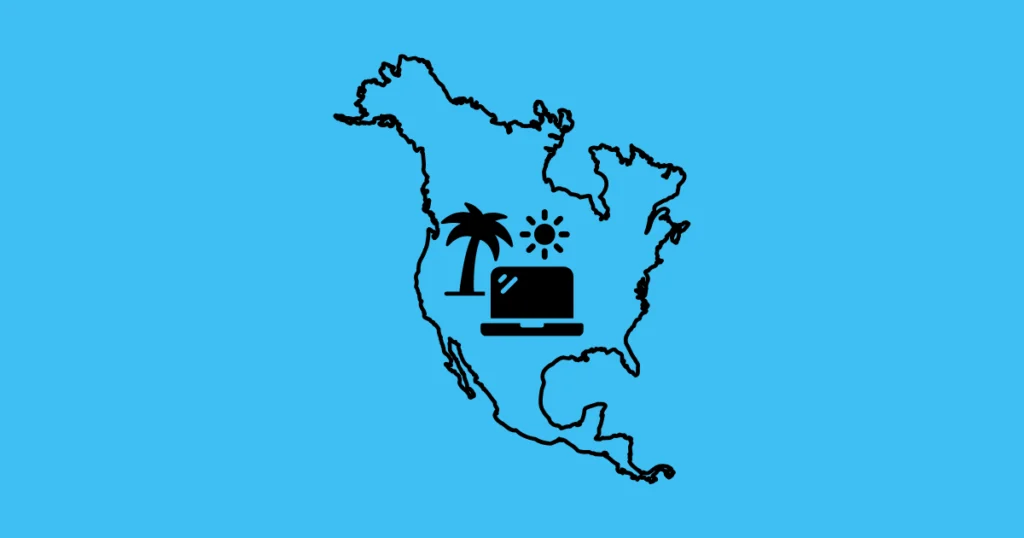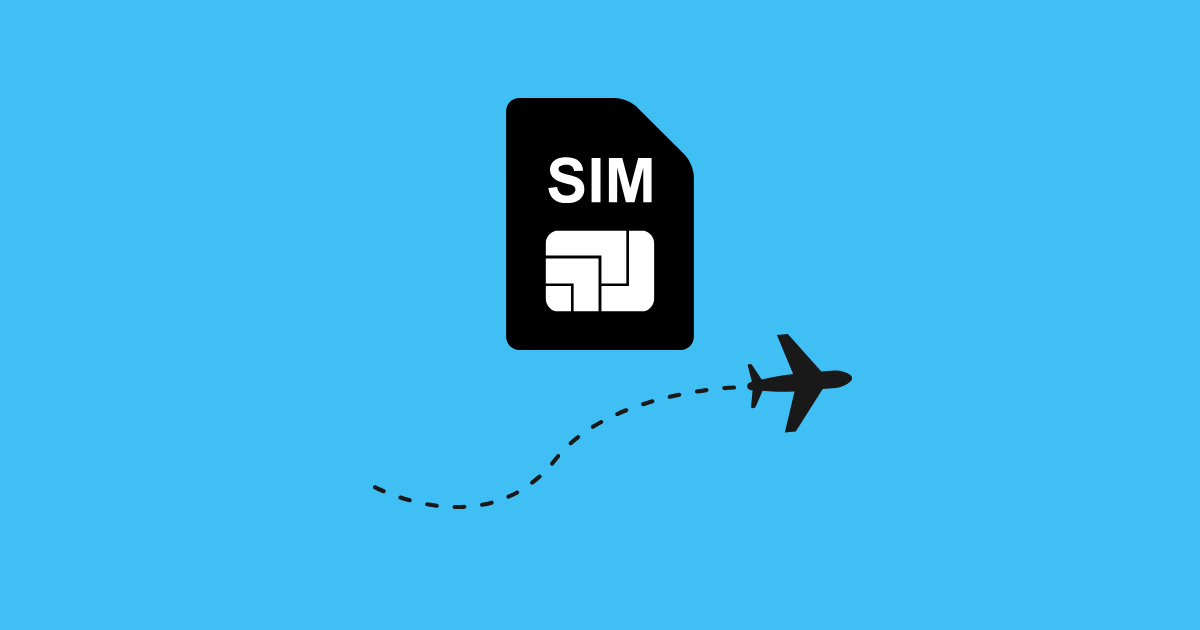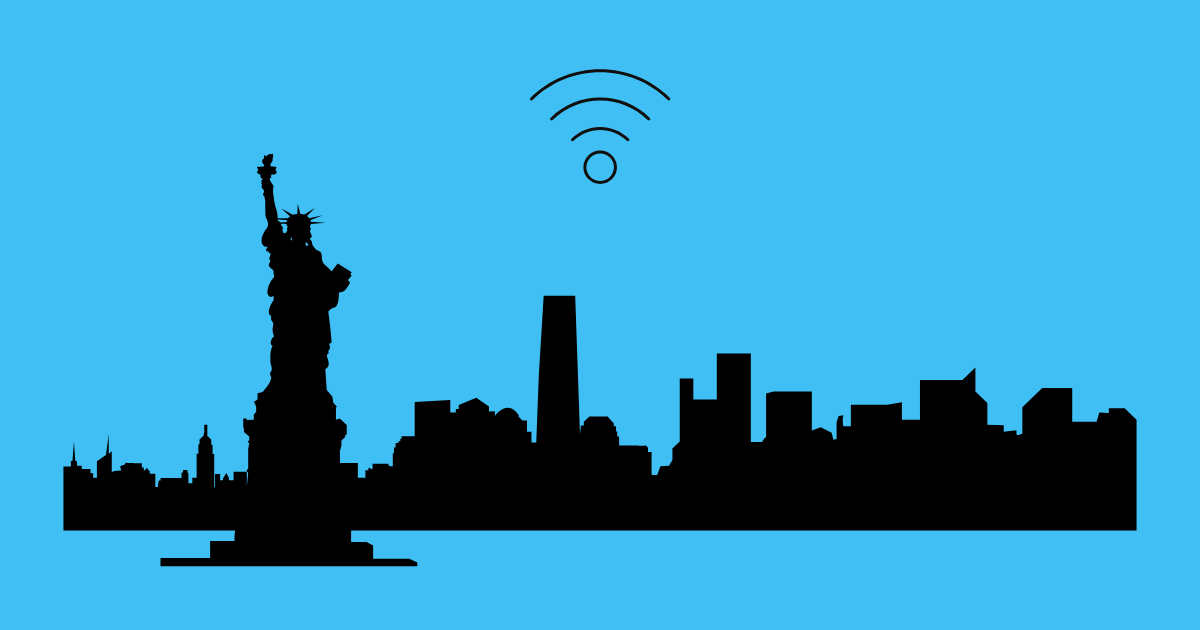The best solutions for digital nomads in the United States and Canada

Working from a New York cafe overlooking Central Park or coding on the shores of a Canadian lake: for many digital nomads, the USA and Canada are the stuff of dreams. But between visa issues, the cost of living and day-to-day organization, the reality can be a little more complex.
In 2025, neither the U.S. nor Canada yet has an official visa 100% designed for digital nomads. Nevertheless, these two destinations remain attractive, whether to develop your professional network, enjoy a unique quality of life or explore dynamic cities.
In this guide, you’ll discover :
- Up-to-date visa options and entry requirements,
- The advantages and disadvantages of each country,
- The best cities to settle in,
- Practical advice (housing, coworking, health, connectivity),
- Join a community to avoid isolation,
- And a few alternatives if these two countries become too complicated.
Choosing between the USA and Canada as a digital nomad?
If you’re primarily looking for networking and professional opportunities, the U.S. remains a strategic choice (provided you manage your legal status and health insurance properly).
If you’re looking for safety, cultural diversity and a balanced lifestyle, Canada is the place for you.
In both cases, good preparation is key: visas, accommodation, insurance and connectivity all need to be anticipated to make the most of the experience.
Visas and entry requirements: what you need to know in 2025
United States: no digital nomad visa (but alternatives)
The United States attracts people with its opportunities and cultural influence, but beware: there is no official digital nomad visa.
If you’re a freelancer, you can stay for several months, but only if your income comes from abroad.
Here are the main options:
- B-1 Business Visa: authorizes business travel (meetings, conferences, partnerships). But it is impossible to work for American clients.
- B-2 Tourist Visa: valid for up to 6 months, useful for working remotely with foreign clients. But it also prohibits you from generating income in the USA.
- H-1B visa: reserved for qualified professions with sponsorship by an American employer. Very competitive and restrictive.
Canada: more options for freelancers and teleworkers
Canada doesn’t have a dedicated visa for digital nomads either, but its procedures are more flexible:
- Visitor visa (VRT): this allows a temporary stay (up to 6 months). As in the USA, you cannot work for a local company.
- Electronic Travel Authorization (AVE): quick and easy for short stays.
- Temporary work permit: this is available if you are awarded a one-off contract or take part in certain programs.
- Specific programs: the PVT (Working Holiday Permit), the entrepreneur program, or the open work permit for spouses.

Pros and cons : USA vs. Canada for digital nomads
United States
Advantages :
- Unrivalled tech and startup ecosystem (Silicon Valley, New York, Austin).
- International networking.
- Huge cultural and geographical diversity.
Disadvantages :
- Very high cost of living in major cities.
- Private health insurance is compulsory and very expensive.
- Strict laws concerning on-site work.
Canada
Advantages :
- High quality of life, safety and a warm welcome.
- Accessible healthcare system (partially for residents, otherwise via insurance).
- Dynamic big cities + easily accessible nature.
- Francophone culture possible (Montreal, Quebec).
Disadvantages :
- A harsh climate, especially in winter.
- Some major cities (Toronto, Vancouver) are very expensive.
- Time-consuming administrative procedures
Must-see cities for digital nomads
In the United States
- Austin (Texas): this is the dynamic tech scene. The cost of living here is more affordable than in San Francisco or New York.
- Miami (Florida): A sunny climate, an international atmosphere, and a growing number of startups make it a place to be for young entrepreneurs. Overall, the city has a good network for remote work.
- Denver (Colorado): Nature, quality of life and lots of attractive coworking spaces.
- New York and San Francisco: global icons, perfect for business… but budget XXL.
In Canada
- Montreal: A bilingual city par excellence, with a rich cultural life and reasonable rents. You’ll also find plenty of coworking spaces.
- Vancouver: A great mix of technology hub and nature just a stone’s throw away (sea & mountains).
- Toronto: The economic and cultural hub of the country, Toronto’s diversity is impressive.
- Quebec: The French-speaking city with a friendly atmosphere and lower cost of living.
5 Practical tips for setting up and working locally
Housing and the rental market
- For short stays: Airbnb, coliving, high-end hostels. You’ll find something to suit every budget.
- For medium-term stays: Kijiji, Craigslist, Marketplace Facebook, Furnished Finder.
In all cases, we advise you to plan your reservation a few days in advance. Unless you’ve decided to hit the road for a roadtrip in the American West (some advice right here here)
Coworking spaces and digital cafés
- USA: There are large chains of coworking cafés such as WeWork, Industrious and Regus. Of course, there are also independent cafés like The Wing or Workshop.
- Canada: As in the U.S., you’ll find plenty of workplaces within easy reach. Here are just a few: Crew Collective (Montreal), Workhaus (Toronto), The Hive (Vancouver).
Internet and connectivity
Whether in the USA or Canada, telephone packages are not cheap. Network coverage is generally very good in the cities, and you’ll find plenty of free Wi-Fi in tourist attractions and coffee shops. If you want to anticipate the cost involved, the best thing to do is to opt for a tailor-made customized prepaid package with a Sim card or eSim.
Health and insurance
- USA: International travel insurance a must.
- Canada: The public system is reserved for permanent residents. Arrange private coverage for temporary stays.
Taxes and obligations
- Do not create involuntary tax residency.
- For freelancers: focus on foreign clients to avoid local obligations.
- Always check the maximum length of stay for each visa.
If you are going to study in the USA, read our article on the subject.

Resources and communities for digital nomads
- Facebook / Slack groups: Digital Nomads in USA, Nomad List Canada.
- Meetup and Eventbrite: numerous networking and tech events for freelancers and expats are organized on a regular basis.
- Coworking spaces: these are often at the heart of the most active communities.
- Useful platforms: Nomad List, Remote Year, Internations.
The USA and Canada remain iconic destinations for digital nomads. The former seduce with their business opportunities and dynamism, the latter with their quality of life and warm welcome. But neither country has yet simplified life for nomadic workers with a dedicated visa.
So, USA or Canada? The choice depends on your ideal balance between career, lifestyle and budget.
In any case, at Sim USA we’re here to support you, so you can carry on working with complete peace of mind!





